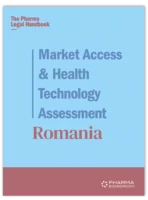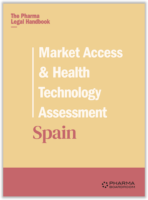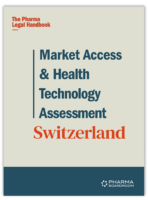Biosimilars & Biologics
Drew & Napier / Iraq
1. Are biosimilar medicines considered the same as generic medicines in your country?
No, biosimilar medicines are not considered the same as generic medicines in Iraq. Generic medicines are chemically identical to their branded counterparts, while biosimilars are derived from living organisms and are similar but not identical to the original biologic product.
2. Are all biologic medicines, including biosimilar medicines patentable in your country?
Yes, all biologic medicines, including biosimilars, are patentable in Iraq, provided they meet the criteria for patentability, such as novelty, inventiveness, and industrial applicability.
3. Is there a specific regulatory framework for the marketing authorization of biosimilar medicines in your country? If yes, what is the regulatory framework for the authorization of biosimilar medicines?
No specific regulatory framework is dedicated solely to biosimilar medicines in Iraq. The general framework for pharmaceutical products applies, governed by the Ministry of Health. Approval requirements for biosimilars typically include safety and efficacy data, similar to biologic medicines.
4. What kind of data package is needed to obtain approval for a biosimilar drug? Is this any different to the requirements for the original Biologics drug?
Biosimilar medicines require a comprehensive data package demonstrating that the product is highly similar to the original biologic drug. This includes analytical, nonclinical, and clinical data. While the data package for biosimilars is designed to prove similarity, the requirements for original biologics focus on demonstrating safety and efficacy from scratch.
5. What are the requirements for the choice of the reference comparator product?
The reference comparator product for biosimilars must be an approved biologic medicine with established safety and efficacy profiles. In Iraq, the chosen comparator product should ideally be one approved by reputable international regulatory agencies like the FDA or EMA.
6. Can the comparator product be sourced from another regulatory jurisdiction? If yes, what are the data needed to support this approach?
Yes, the comparator product can be sourced from another regulatory jurisdiction, typically from countries with established pharmaceutical regulatory frameworks. The data required to support this approach include evidence of approval from the foreign jurisdiction and proof that the comparator product meets Iraqi regulatory standards.
7. How are the prices of biosimilar medicines regulated? Is this any different to the requirements for the original Biologics drug?
Biosimilar medicines are subject to the same pricing regulations as other pharmaceutical products in Iraq. Prices are regulated by the Ministry of Health based on factors like production costs, import tariffs, and market demand. There might be some differences in pricing strategies between biosimilars and original biologics due to market competition and production efficiencies.
8. What is the reimbursement policy for biosimilar medicine? Is this any different to the requirements for the original Biologics drug?
Reimbursement policy for biosimilars in Iraq generally aligns with the broader policy for pharmaceuticals. Reimbursement depends on public health programs, insurance providers, and specific agreements with healthcare facilities. There might be differences in reimbursement rates due to the potential cost savings offered by biosimilars compared to original biologics.
9. Does biosimilar competition impact the reimbursement policy of the originator reference products?
Biosimilar competition can impact the reimbursement policy for originator products by driving down costs, leading to reduced reimbursement rates for the original biologics. However, this impact might not be as pronounced in Iraq due to the relatively new market for biosimilars and limited regulatory frameworks focusing on cost-based competition.
10. What is the legal framework for biosimilar medicines prescribing (clinical decision maker) and dispensing (pharmacy level, hospital or retail)? Is this any different to the requirements for the original Biologics drug?
The legal framework for prescribing and dispensing biosimilar medicines in Iraq follows the general pharmaceutical guidelines set by the Ministry of Health. The requirements are not notably different from those for original biologics, focusing on proper licensing, safety, and compliance.
11. Is the system considering physician-led switching and/or pharmacy-level substitution (without involvement of the clinical decision maker)?
Physician-led switching may be considered when prescribing biosimilars, but pharmacy-level substitution without the involvement of a clinical decision-maker is less likely due to the complex nature of biologics and biosimilars. The system in Iraq generally requires a physician’s approval for changes in treatment.
12. What are the post – authorisation requirements (including pharmacovigilance, risk management plans, post-approval studies) for biosimilar medicines? Is this any different to the requirements for the original Biologics drug?
Post-authorization requirements for biosimilar medicines in Iraq align with general pharmacovigilance practices. This includes monitoring for adverse events, risk management plans, and potential post-approval studies. These requirements are not significantly different from those for original biologics, emphasizing safety and ongoing compliance.
13. Are there specific policies and requirements in terms of biosimilar medicines labelling in the event of second medical use patents? Is this any different to the requirements for the original Biologics drug?
Specific policies and requirements for biosimilar medicine labeling in the event of second medical use patents are not distinct in Iraq. Biosimilar medicines generally follow the same labeling standards as other pharmaceutical products, focusing on accuracy, safety, and regulatory compliance.
14. Have there been any significant legal/judicial developments in relation to biosimilars in your country? (Including but not limited to IP, procurement, competition, misleading information campaign, access to reference comparator product)
Significant legal or judicial developments related to biosimilars in Iraq are rare due to the relative infancy of the biosimilar market. The focus is primarily on establishing regulatory frameworks and ensuring safety and compliance in the pharmaceutical industry.
15. Are there proposals for reform or significant change to the legal, regulatory, procurement of biosimilars? If yes, when are they likely to come into force?
There are no known significant proposals for reform specifically targeting biosimilars in Iraq. Reforms in the pharmaceutical sector generally focus on broader issues like regulatory compliance, safety, and quality control. If future changes are proposed, they will likely be influenced by international trends and efforts to improve healthcare quality and accessibility.


































































